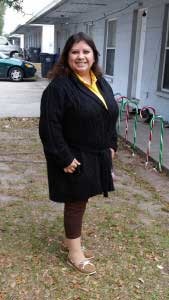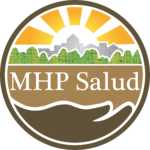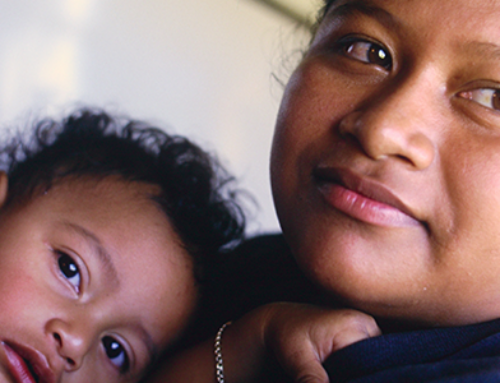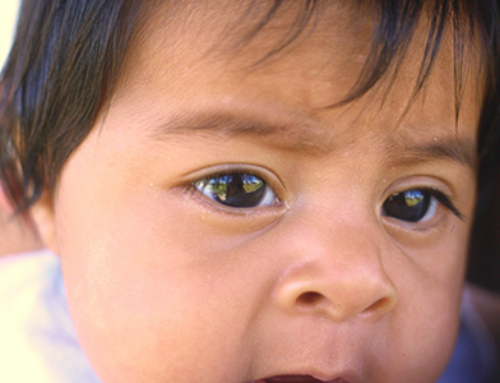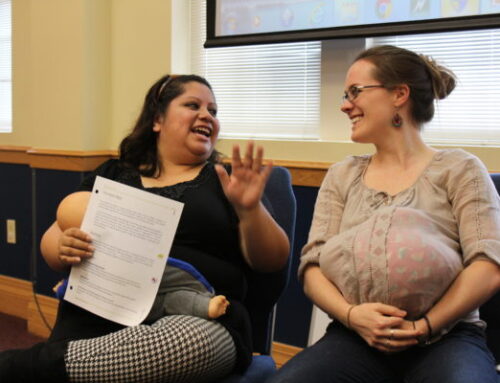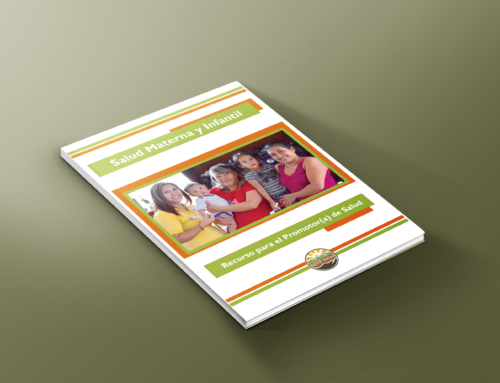Instinto Maternal: Finding Innovative Solutions within the Community
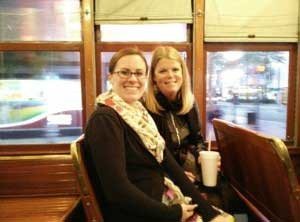
Instinto Maternal Program Director, Randi McCallian, MPH (Left) and MHP Salud Chief Programming Officer, Colleen Reinert, MPH
Breastfeeding while working can be challenging. Breastfeeding while employed as a farmworker may bring additional challenges like long working hours, unreliable breaks and an outdoor work environment . Yet some women who work in agricultural fields manage to feed their babies the recommended diet of exclusive breast milk through the first six months of life (Centers for Disease Control and Prevention, 2010). MHP Salud’s innovative new program, Instinto Maternal (Maternal Instinct), asks “how do they do it?”
With funding from the W. K. Kellogg Foundation, MHP Salud will utilize the Positive Deviance Inquiry model to understand how some women in these circumstances are able to successfully breastfeed. MHP Salud will collect and spread information on successful practices women currently use to breastfeed while employed as farmworkers and living in select migrant labor camps in Florida, Michigan and Ohio over a three year period.
The Positive Deviance Inquiry model complements MHP Salud’s core use of Community Health Workers (CHWs) to improve community health in that both models acknowledge and capitalize on the existing strengths within the community. As such, MHP Salud proposed to use the CHW model and Positive Deviance Inquiry approach to identify, cultivate and better enable the successful infant feeding methods already present in communities, with the goal of championing community-sourced best practices.
The Positive Deviance Inquiry model approaches health challenges with the idea that every community has a few individuals or groups whose uncommon but successful behaviors and strategies enable them to find better solutions to problems than their neighbors. By exploring the solutions already present in a “positively deviant” group in the target population, a community not only arrives at a set of successful practices, but the nature of the model ensures the practices’ feasibility and sustainability within the target population’s culture (Tufts University, 2010).
Though Program Director Randi McCallian was unfamiliar with the Positive Deviance Inquiry model, she was a natural fit for program because of her passion for maternal and child health.
“I’ve always been very interested in motherhood and babies, but when I got into public health, I realized breastfeeding specifically seemed like a really strong area that we can improve in for both maternal and infant health,” she said. “It’s a pretty easy area to tackle; all you need is a mother and a baby in most cases.”
Breastfeeding improves maternal health by reducing a mother’s risk for various illnesses including cancer, diabetes and osteoporosis. Calories burned during breastfeeding can also help a mother return to her pre-pregnancy weight faster. Further, breastfed babies have a decreased risk of infections (like respiratory, gastrointestinal and ear infections), obesity, asthma and childhood leukemia and they receive all the vital nutrients only found in mother’s milk (Office on Women’s Health, 2014). Breastfeeding also makes economic sense, because there is no need to purchase formula.
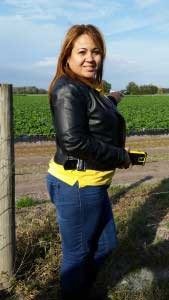
Instinto Maternal Community Health Worker, Lisandra Peña Merced, M.Ed
“Some people even call breastmilk the baby’s first vaccine, because it’s so full of nutrients and antibodies,” said Randi.
Once she joined the MHP Salud staff, Randi got to work researching the Positive Deviance Inquiry model.
“I love the positivity of it, because I like the idea of finding what works from inside the community and spreading that idea rather than focusing on what doesn’t work,” she said.
However, it can be intimidating to plan for a health program where the approach to solving the health issue is unknown. This is a first both for Randi and MHP Salud.
“It’s exciting not to know exactly what’s going to come from this specific population of positive deviants,” she said. “People in the establishment tend to think they have all the answers, but no one knows a community as well as they know themselves.”
As a result, selecting the program’s CHWs proved vital in setting up the program. The hiring process sought women who were deeply engaged with their communities, who have breastfed, who were friendly and approachable and who were knowledgeable of the resources within that area.
One of these women was Anna Lamb who has served as a CHW for 13 years volunteering in the fields of health, social work and immigration.
“Breastfeeding is my passion,” she said. “When we talk about health, it all begins with the eating habits of babies.”
The program’s focus hits close to home for Anna, who experienced difficulty breastfeeding her own four children. When she had her first child, she ended up quitting her job because her baby would not drink pumped milk from a bottle.
“It wasn’t easy for me, because my income was part of what we needed to support us to pay the bills, but my baby’s health was more important to me,” she said.
Later, Anna gave birth to a premature baby, to whom the doctors instructed her to give formula.
“It wasn’t until later that I realized that I had options, so I felt the doctors took away my right to make a choice,” she said.
After that, Anna became a Certified Breastfeeding Peer Counselor so she could help women who were in her position.
“When I see new mothers going through similar situations and being advised that formula is better for the baby, that’s when I explain that they have options, and if they have options, they should be choosing the best option for them,” she said.
After successfully raising four children while working, Anna says she is excited to share helpful information with new mothers and allow them to feel heard in a way she never felt.
“I always tell mothers that there is help and they are not alone,” she said, “because we all share the same feelings, and they finally feel that someone is listening and understanding what they are going through.”
Return to MHP Salud 2014 Annual Report
About MHP Salud
MHP Salud has over thirty years of experience implementing CHW programs and training organizations looking to start and/or strengthen their own CHW programs. For more information about MHP Salud, our services, and how we can help you, please email us at info@mhpsalud.org

